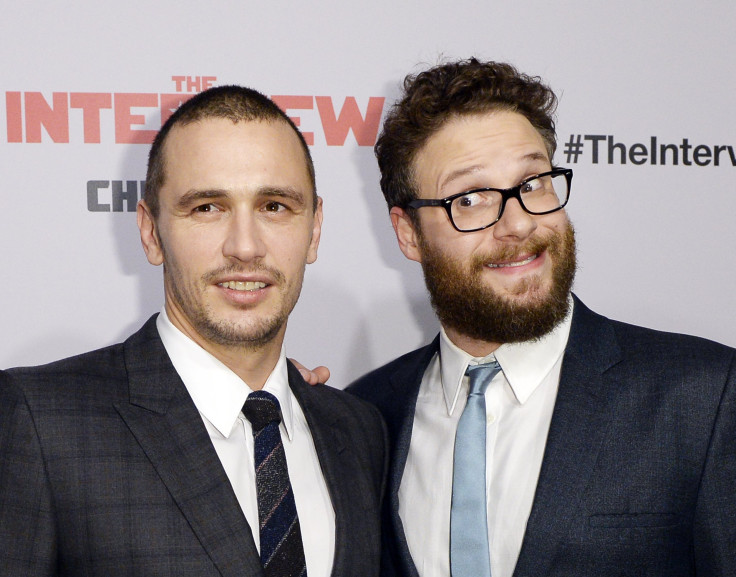You Can't Blame Sony Pictures, Theater Chains For Making Rational Business Decisions On 'The Interview'

Sony Pictures Entertainment's decision not to release “The Interview” -- following cinema chains’ decision not to screen it -- has triggered an outpouring of eulogies for free expression and much hand-wringing over capitulation to a state-sponsored terrorist threat.
Sen. John McCain, R-Ariz., was the latest to weigh in Thursday, calling Sony's move "a troubling precedent," while laying ultimate blame on the Obama administration for its “continuing failure to satisfactorily address the use of cyber weapons by our nation's enemies.” For its part, the White House called it a "serious national security issue."
Hollywood's creative community took aim at Sony and the major U.S. exhibitors for not having the courage to release the film in the face of unspecific threats. "Will they pull any movie that gets an anonymous threat now?" director Judd Apatow wrote on Twitter.
But in the face of righteous indignation, there's an underlying point left unsaid: that Sony and the theater chains are simply making rational business decisions, given the circumstances. Leaked internal emails show Sony execs' misgivings about "The Interview" long before the self-proclaimed Guardians of Peace vigilantes raised the stakes. One exec called the comedy a “misfire," “desperately unfunny and repetitive.” Others doubted that the subject matter, and Seth Rogen's brand of humor, would play in foreign markets.
The movie cost $44 million to make and another $36 million or so to promote and market, according to documents leaked, ironically, by the hackers. Box office predictions projected the movie would make just $90 million in the U.S., making it a break-even prospect before international showings and secondary windows like sales, rentals and video-on-demand. And that was before the first theater chain backed out.
The margins on “The Interview” were going to be incredibly thin even in the best-case scenario. The hack and all the associated publicity were perhaps the best things that could have happened to the film; any change in circumstances, such as diminished distribution or security threats, made the film a money-losing proposition. Given that an art-house release, VOD, or simply releasing it on the Internet would bring few dollars and possibly more hacking, Sony made the rational call to pull the plug. It's telling that shares in Sony Corp. rebounded 3 percent Wednesday, and another 3 percent Thursday, after Sony Pictures decided not to release it.
Likewise, the exhibitor chains were faced with theatergoers staying away from the multiplex on two of the biggest box-office days of the year, Christmas and New Year's Day. “The Interview” was the only major comedy cued up for Christmas Day -- otherwise full of family films like “Night at the Museum 3,” Oscar contenders like “Leviathan,” and “The Hobbit: The Battle of the Five Armies.” Even if theaters could guarantee safety at the multiplex, why sacrifice ticket sales for a movie with such limited prospects?
It’s possible that Sony could release the film at a later date, either straight to video or, as some have suggested, pay-per-view online. Leaked emails reveal that the company took out a $60 million cyber insurance policy with Marsh that covers “security and privacy liability coverage, as well as event management, network interruption, cyber extortion and regulatory action.” But that barely begins to cover the cost of production and marketing of the film, let alone the $100 million in additional costs related to the hack itself.
There are no good options for Sony Pictures. Given its obligations to employees and shareholders, Sony chose the least bad of a host of bad ones.
© Copyright IBTimes 2024. All rights reserved.






















